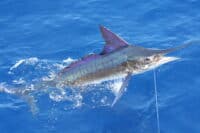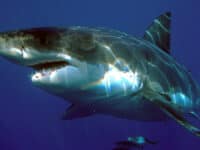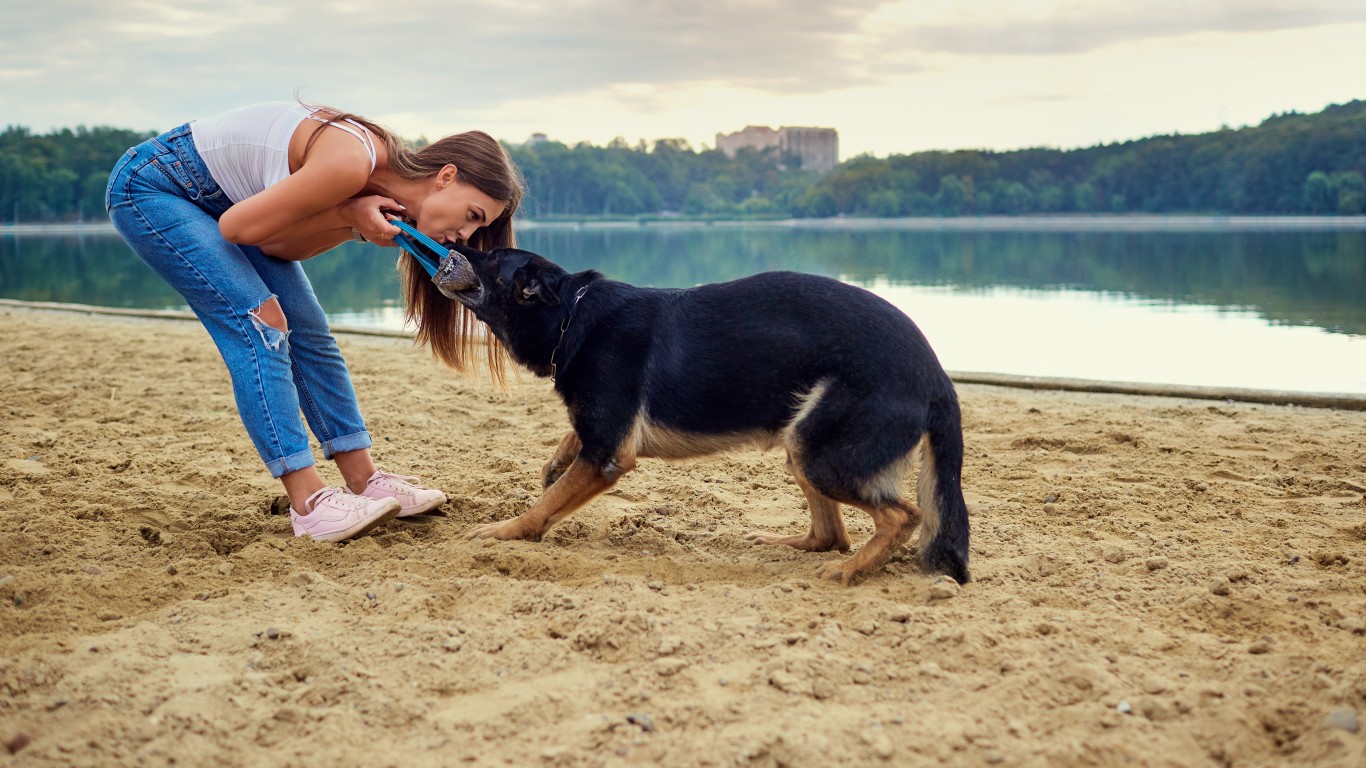
The terms “watchdog” and “guard dog” are sometimes used interchangeably, but they denote different functions. Watch dogs have one job: to raise the alert when they detect something unusual, such as an intruder. For that reason, the size of the dog doesn’t matter, though the ability to bark loudly does. Guard dogs, by contrast, should be able to deter intruders or other potential sources of trouble; that may mean more than barking and also means they should be properly trained. (These are the hardest dog breeds to train.)
To determine the best guard dogs, 24/7 Tempo reviewed the report “Dogs and home insurance: what you need to know” from the U.K.-based insurance, utilities, finance, and automotive comparison site Confused.com. Dog breeds were ranked based on a survey of over 200 dog obedience judges. Information on a breed’s personality attributes, typical size, and life expectancy came from the American Kennel Club.
The top three guard dogs are the Bullmastiff, Doberman Pinscher, and Rottweiler. These are fairly large dogs and are considered by many people to be intimidating.
The Bullmastiff is a cross between a Bulldog and Mastiff that was bred specifically to be a guard dog. The AKC describes it as a world-class protector and family companion.
The Doberman Pinscher is fearless and vigilant. A well-conditioned Doberman on patrol will deter all but the most foolish intruder, says the AKC.
The Rottweiler’s reputation for aggressiveness may be undeserved – proper training is essential – but the breed has nevertheless been banned in some countries and in some municipalities in the United States. (These are the most aggressive dog breeds.)
Click here to see the best guard dog breeds
Interestingly there are two smaller breeds on our list. At No. 5 is the Puli, which is compact, typically weighing between 25 and 35 pounds, but powerful. Also on the list is the Staffordshire Terrier, which is about the same size as the Puli, but is a muscular and courageous breed.
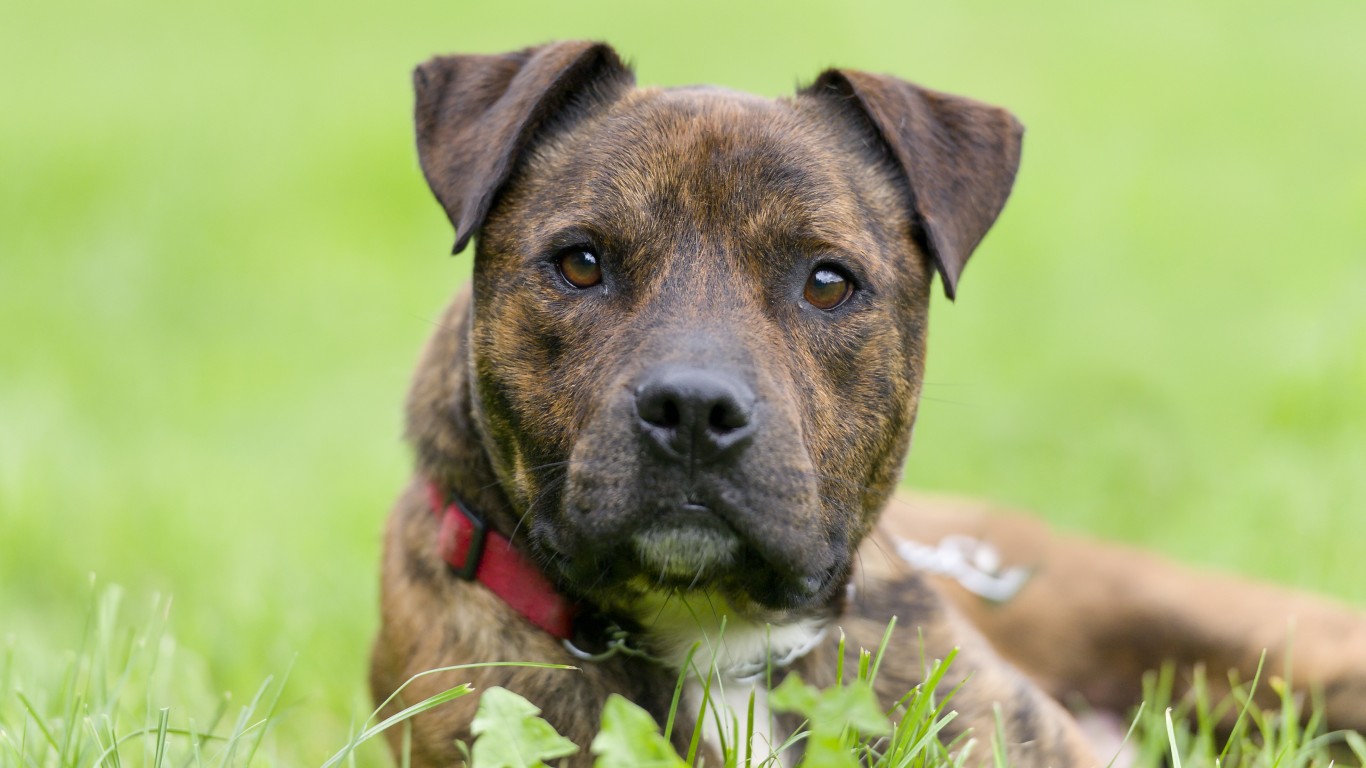
10. Staffordshire Terrier
> Attributes: Clever, brave, tenacious
> Typical size: 14-16 inches, 24-38 pounds
> Life expectancy: 12-14 years
[in-text-ad]

9. Kuvasz
> Attributes: Fearless, sweet, loyal
> Typical size: 26-30 inches, 70-115 pounds
> Life expectancy: 10-12 years
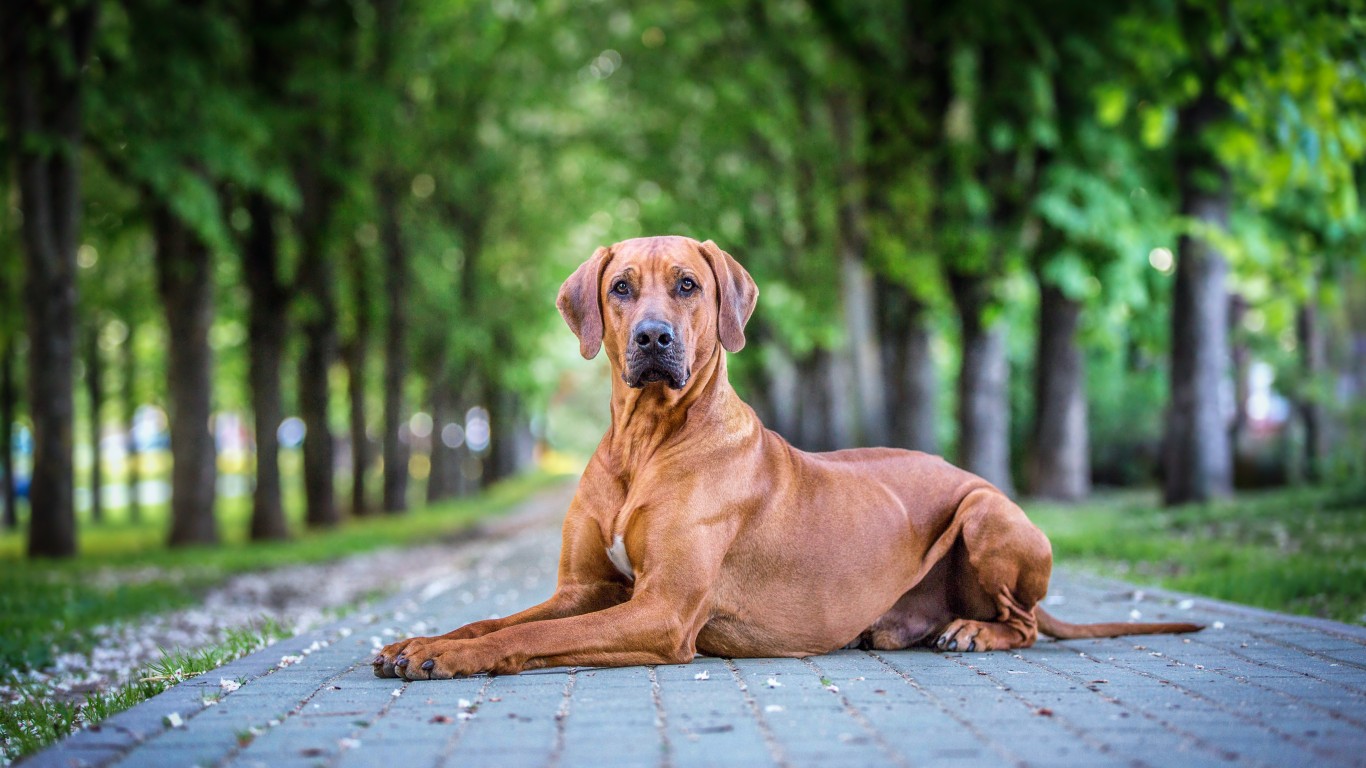
8. Rhodesian Ridgeback
> Attributes: Dignified, affectionate, even-tempered
> Typical size: 24-27 inches, 70-85 pounds
> Life expectancy: N/A
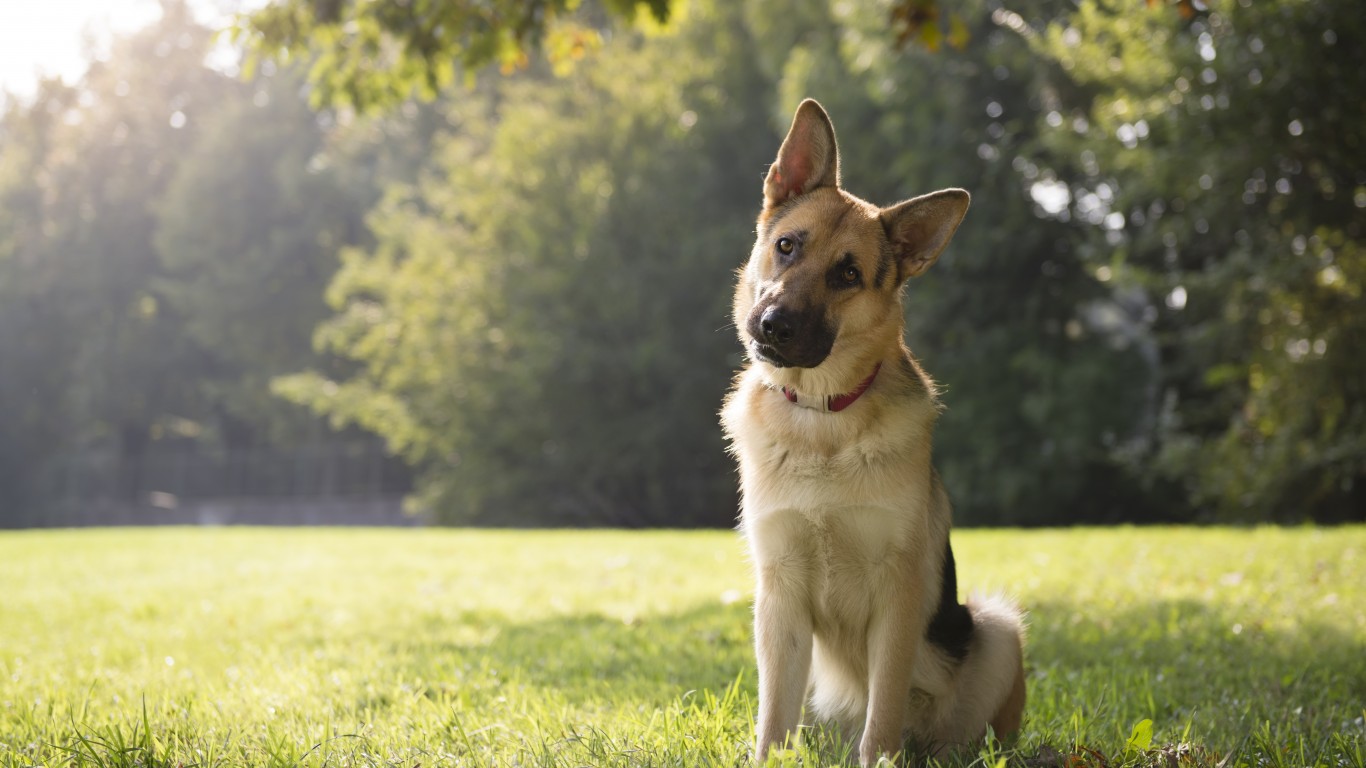
7. German Shepherd
> Attributes: Confident, courageous, smart
> Typical size: 22-26 inches, 50-90 pounds
> Life expectancy: 7-10 years
[in-text-ad-2]
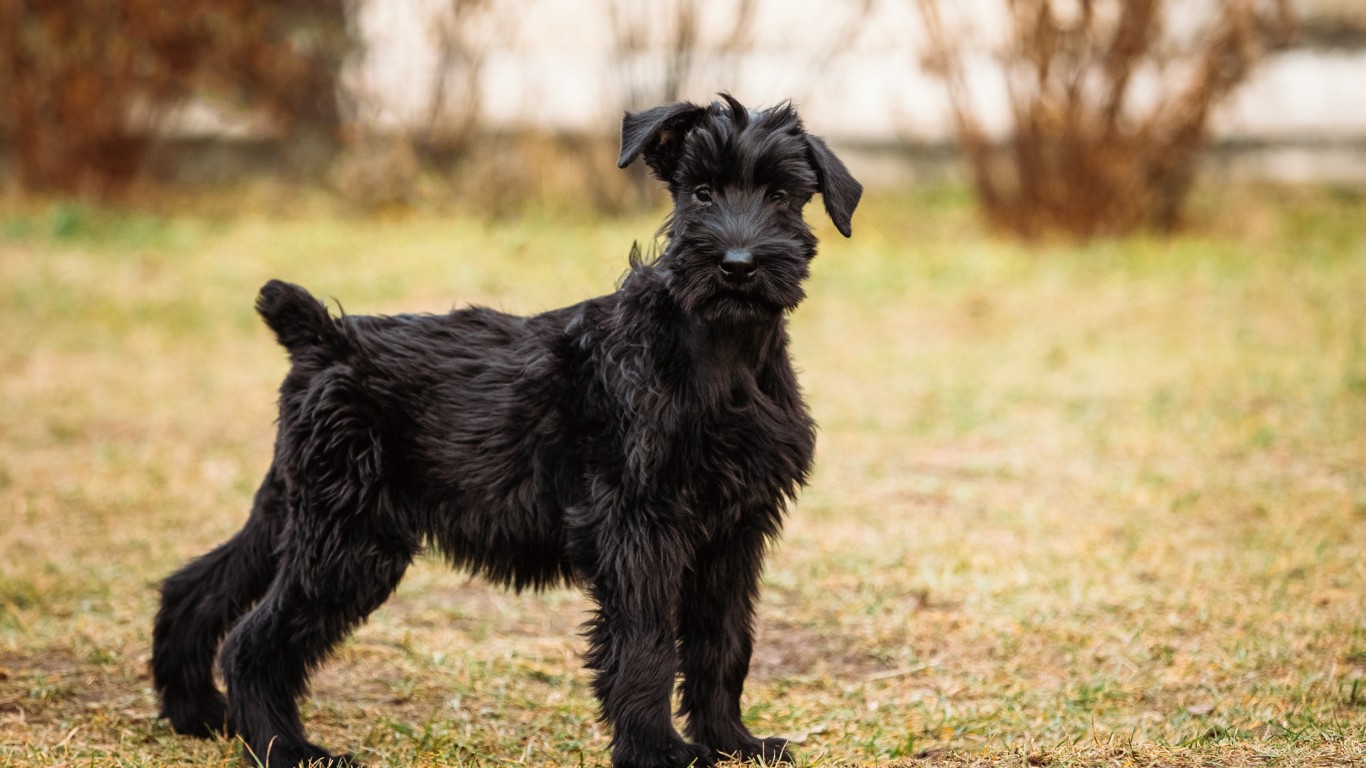
6. Giant Schnauzer
> Attributes: Loyal, alert, trainable
> Typical size: 23.5-27.5 inches, 55-85 pounds
> Life expectancy: 12-15 years
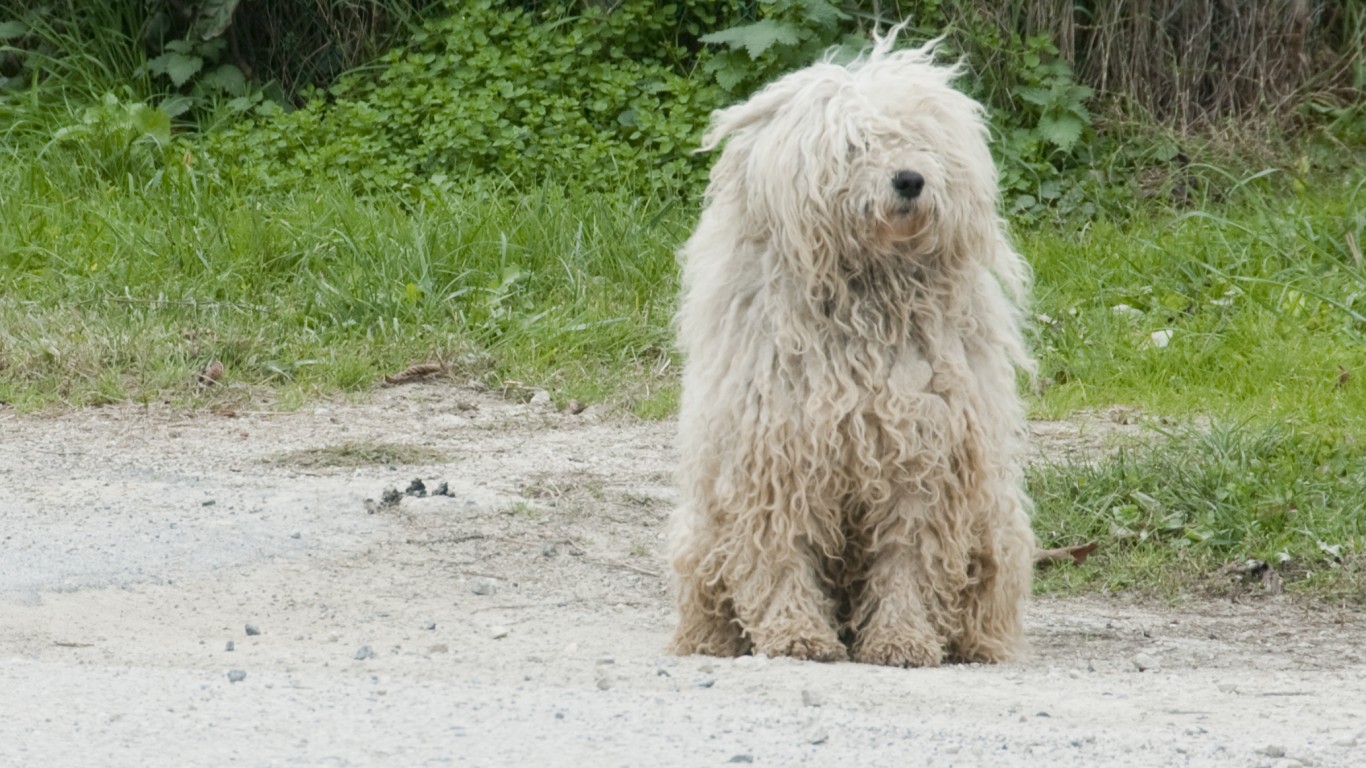
5. Puli
> Attributes: Loyal, smart, home-loving
> Typical size: 16-17 inches, 25-35 pounds
> Life expectancy: 10-15 years
[in-text-ad]
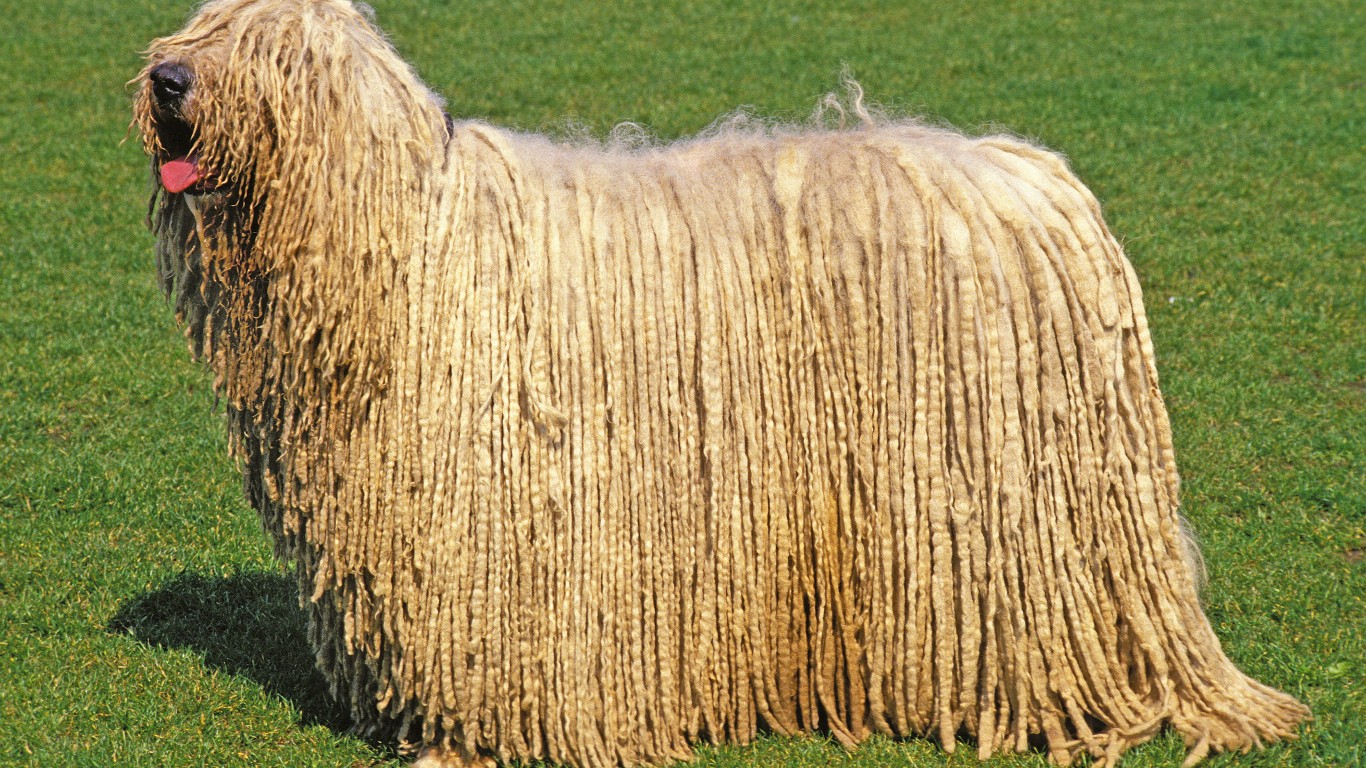
4. Komondor
> Attributes: Dignified, loyal, brave
> Typical size: 25.5. inches or more, 80 pounds or more
> Life expectancy: 10-12 years
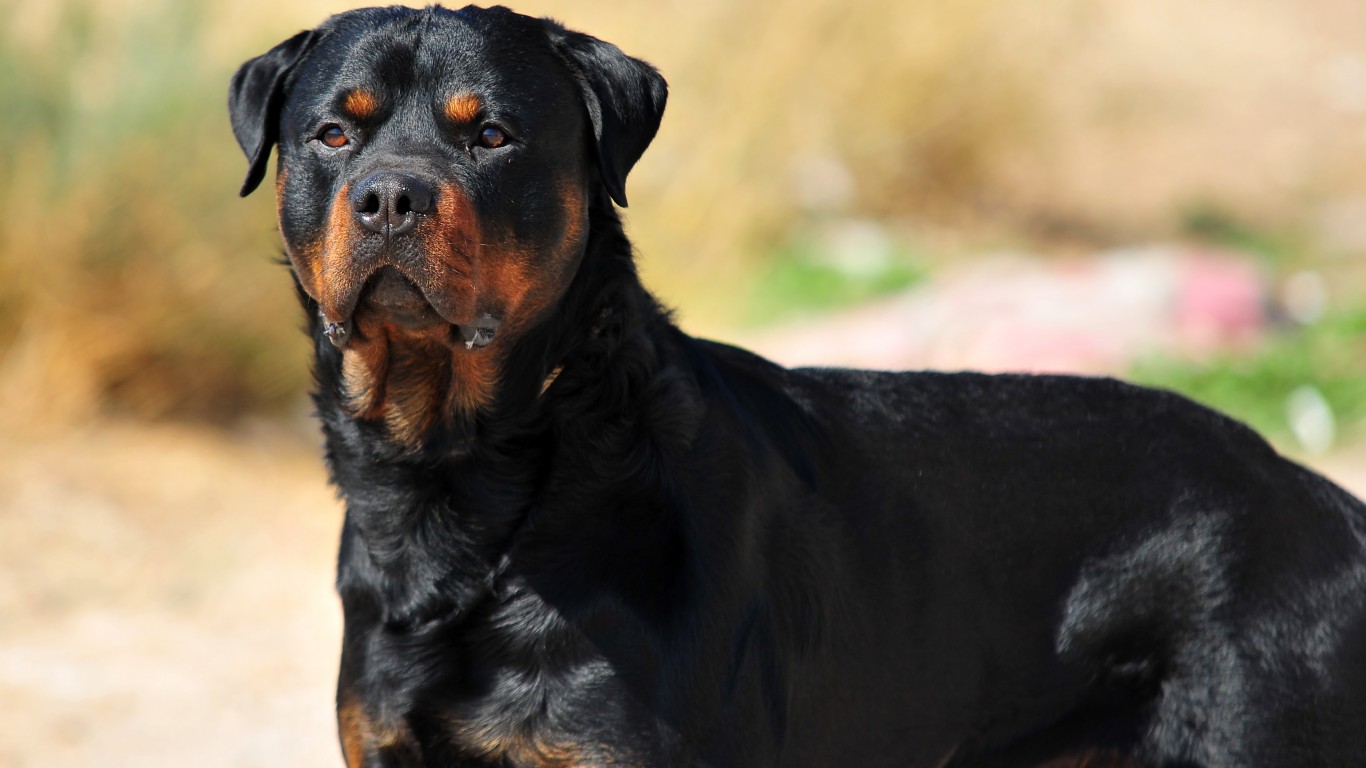
3. Rottweiler
> Attributes: Loyal, loving, confident guardian
> Typical size: 22-27 inches, 80-135 pounds
> Life expectancy: 9-10 years
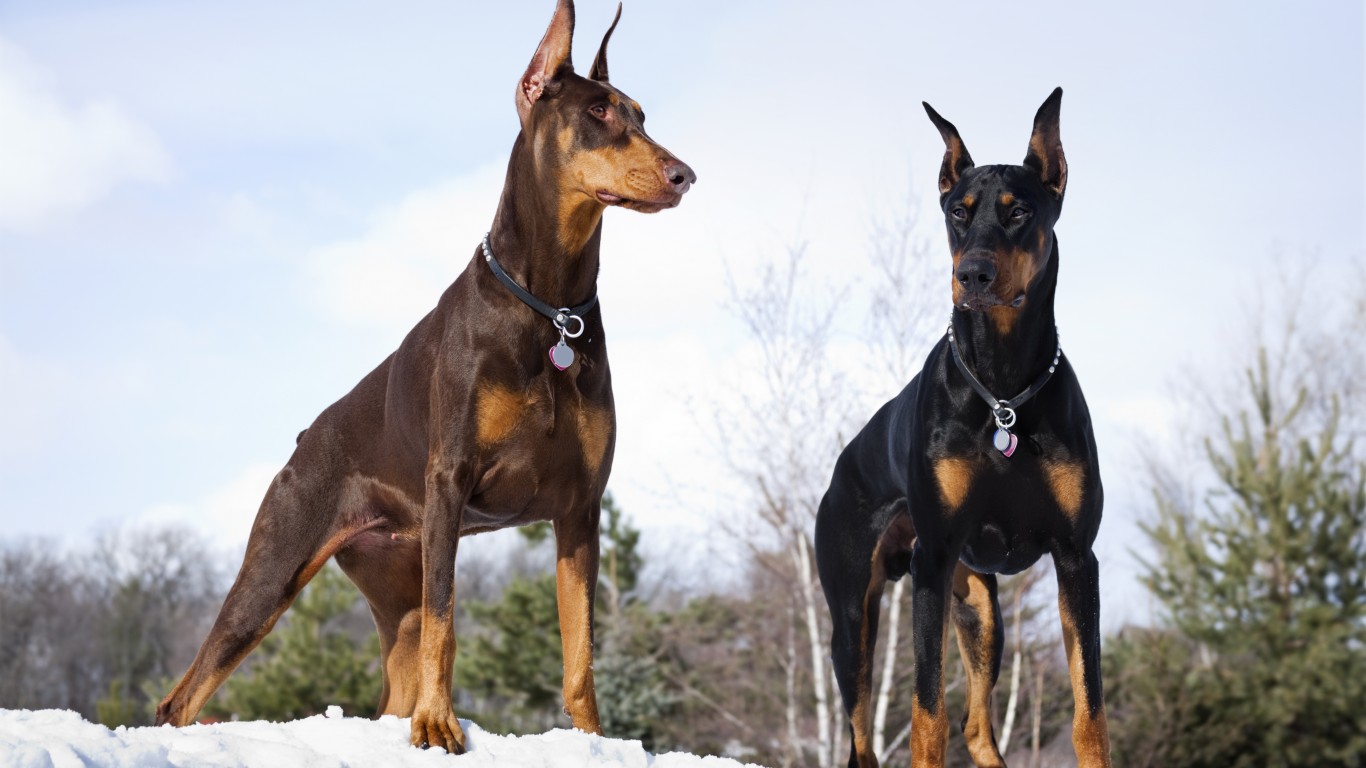
2. Doberman Pinscher
> Attributes: Fearless, loyal, alert
> Typical size: 24-28 inches, 60-100 pounds
> Life expectancy: 10-12 years
[in-text-ad-2]
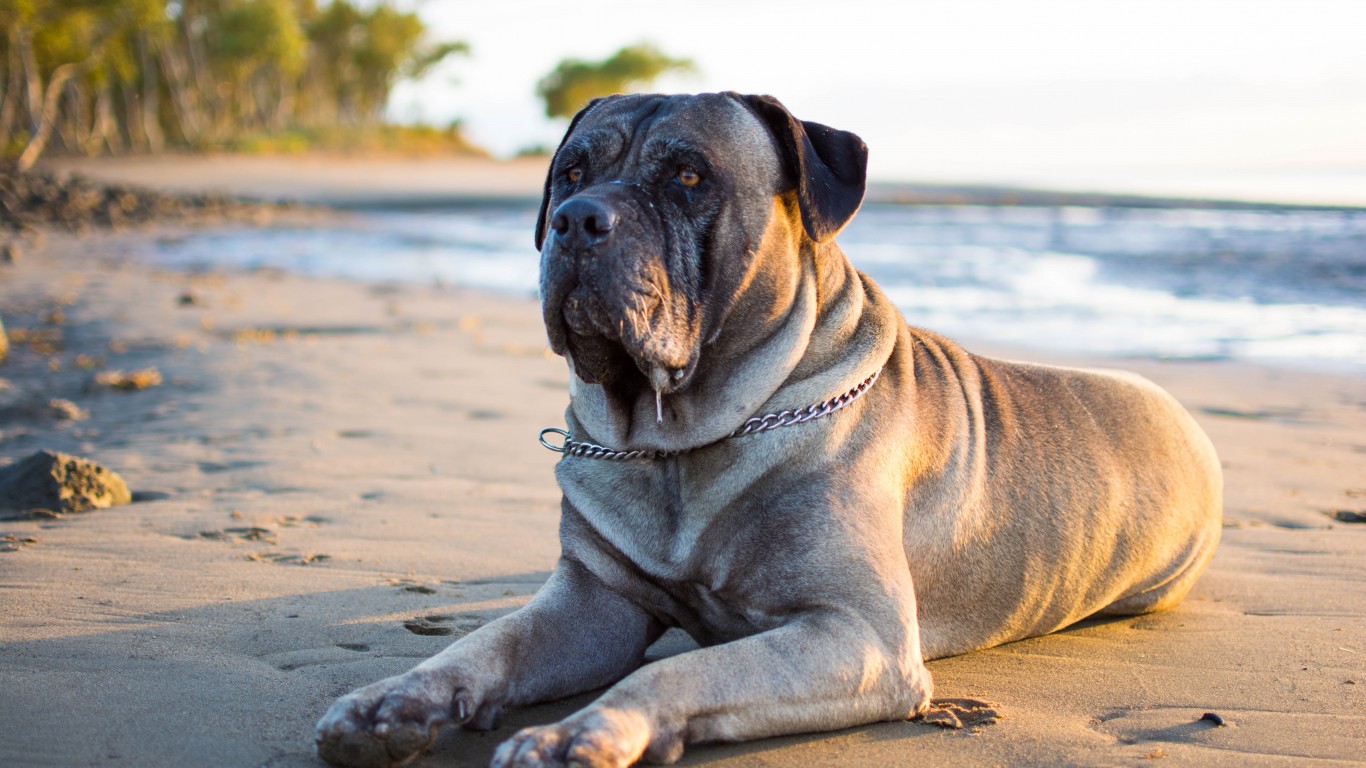
1. Bullmastiff
> Attributes: Affectionate, loyal, brave
> Typical size: 24-27 inches, 100-130 pounds
> Life expectancy: 7-9 years
Find a Qualified Financial Advisor (Sponsor)
Finding a qualified financial advisor doesn’t have to be hard. SmartAsset’s free tool matches you with up to 3 fiduciary financial advisors in your area in 5 minutes. Each advisor has been vetted by SmartAsset and is held to a fiduciary standard to act in your best interests. If you’re ready to be matched with local advisors that can help you achieve your financial goals, get started now.
Thank you for reading! Have some feedback for us?
Contact the 24/7 Wall St. editorial team.
 24/7 Wall St.
24/7 Wall St.
